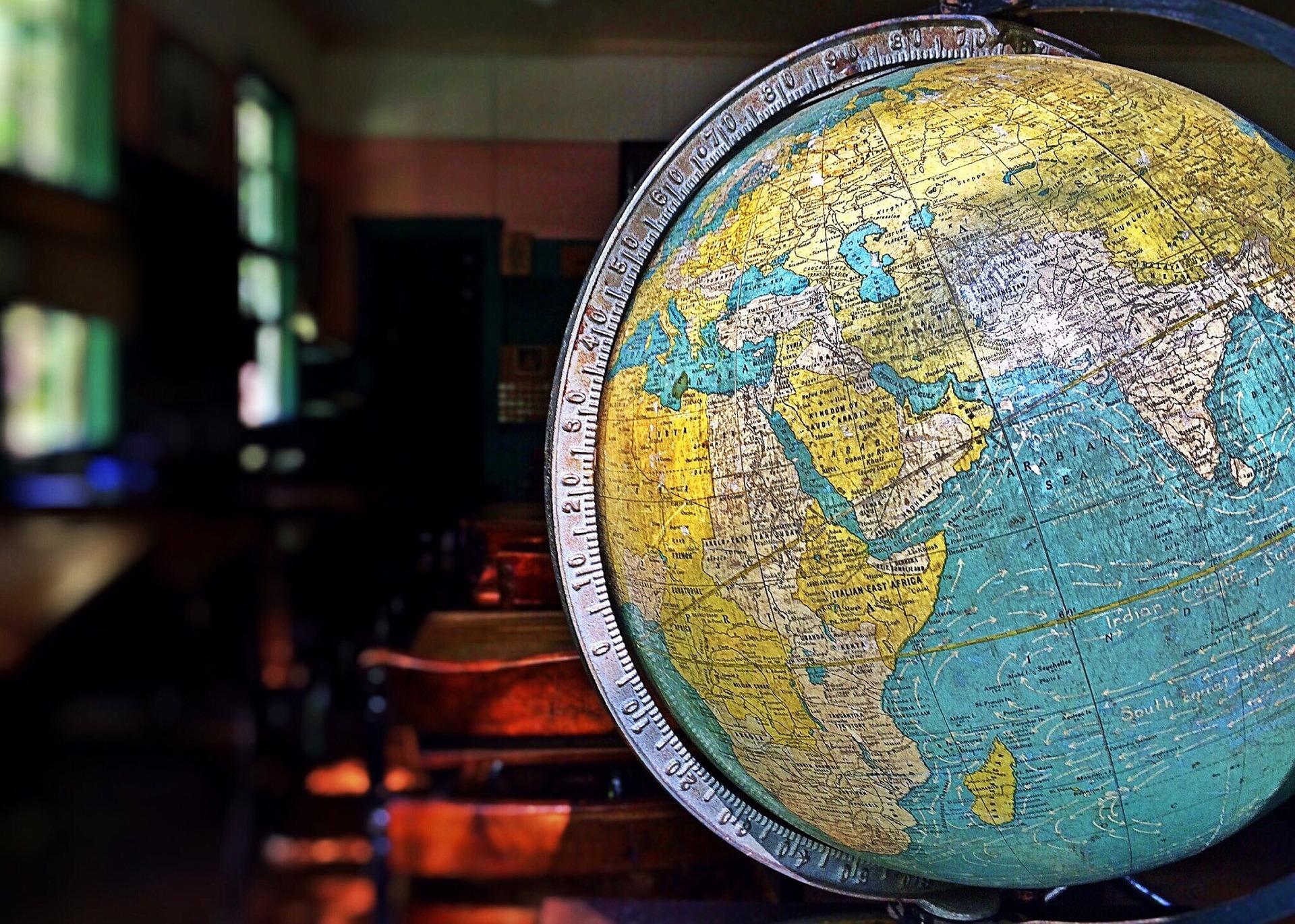Employers and Universities: Work with us?

Why study geography?
Are you interested in how the world works – from the natural environment to the human societies that inhabit it? Then geography could be for you.
Geography looks at both the physical structure of the planet and the social structure (i.e. how we affect our environment and how it affects us) in the past, present and future.
It can lead to roles in government, international development, ecology, conservation and science – as well as providing transferable skills useful across almost every industry.
'Interested in the world and its people? Geography combines the environment with human society – leading to many career paths'
What is geography?
Geography can be divided into two main branches:
Physical geography: A branch of earth science, which looks at the natural elements of the world, including the atmosphere, land and oceans. Physical geographers study things like climate, soil, how the earth was formed and how it is changing over time.
Human geography: A social science that studies how humans interact with the planet and covers things like population growth, migration, how urban and rural settlements develop, how we work with animals and even how our economies are affected by the environment we live in.
Because geographers deal with the natural world and how we behave in it, their jobs can take them everywhere, from taking soil samples on the edge of a volcano to mapping a new town, charting the changes to a glacier in the arctic, or even teaching you in a comfortable classroom.
Geographers have done some pretty important things for the human race, including charting new territory, developing maps (cartography) and measuring distances to help us get from A to B long before we could simply take a picture of an area from space.
Teachers, bring geography careers into your classroom…
Our colourful guides and posters are a great way to make careers learning interactive while ticking off all eight Gatsby benchmarks!
- Gatsby Subject Guides – Explore how the skills and knowledge students develop in geography lead to real jobs – packed with case study interviews! All subjects available – buy individually or as a set. Browse in our shop now.
- Subject Posters – From the future of jobs in geography to top industries and key skills linked to your subject, choose the best careers poster to brighten up your classroom wall. All subjects available. Browse in our shop now.
What employability skills will I get?
Economics is one of those subjects where you will learn key skills that will directly help you in the workplace. Some of the skills that you will learn from studying economics includes:
- Analysis – you’ll study maps, data and case studies to spot patterns and understand what’s happening in different places.
- Communication – you’ll present ideas clearly in essays, presentations and discussions, explaining complex issues like climate change or migration.
- Cultural awareness – geography helps you understand how people live around the world, building empathy and a global perspective.
- Organisation – from structuring your coursework to managing fieldwork, you’ll learn how to plan and keep track of your work.
- Research – you’ll investigate real-world issues using sources like surveys, satellite images and field observations to back up your arguments.
What subjects does geography go with?
Geography will support the study of sciences – particularly biology, with both subjects linking to careers in ecology and environmental science.
The human geography element is also useful if you’re taking a social science such as sociology, with both subjects looking at large societal trends from different perspectives.
Geography A-level is also a facilitating subject, which means that it can be useful for a whole range of university courses and will help you keep your options open.
What degrees do I need geography for?
If you want to study geography at university, you’ll almost certainly need to study it at A-level. Geography A-level is also required from some environmental science and planning courses.
According to the Russell Group, geography A-level is useful for courses in: archaeology, civil engineering, geology and sociology.
What apprenticeships is geography useful for?
There are many relevant apprenticeships for geography students, in fields such as agriculture, conversation, ecology and geoscience.
- Countryside ranger – Manage and protect natural landscapes, working with communities to enjoy and care for the environment.
- Ecologist – Study ecosystems and biodiversity to inform conservation efforts and environmental policies.
- Geoscientist – Analyse and understand the Earth's processes to encourage the sustainable use of natural resources, reducing environmental harm.
- Geospatial mapping and science specialist – Collect and interpret spatial data to create maps and models for planning and development.
- Land-based service engineer – Maintain and repair machinery used in agriculture and land management, making sure operations are safe and efficient.
What careers can geography lead to?
According to the Royal Geographical Society, geography graduates have some of the highest rates of graduate employment.
Geography is great for any kind of career that involves the environment, planning, or collecting and interpreting data. Popular careers for people with geography qualifications include: town or transport planning, surveying, conservation, sustainability, waste and water management, environmental planning, tourism and weather forecasting (meteorology).
The government, research, law and business worlds also love the practical research skills that geographers develop.
Roles include:
- Agricultural consultant
- Architect
- Cartographer
- Countryside manager
- Geologist
- Horticultural scientist
- Landscape architect
- Meteorologist
- Soil scientist
- Town planner
Because geographers learn about human and population development, geography can be useful for jobs in charity and international relations too.
If you're interested in pursuing a career in geography, check out our post Career choices for geography students.
Top five Career Zones to explore:
- Agriculture & Environment
- Construction & Property
- Energy & Utilities
- Hospitality, Leisure & Tourism
- Public Sector & Government
